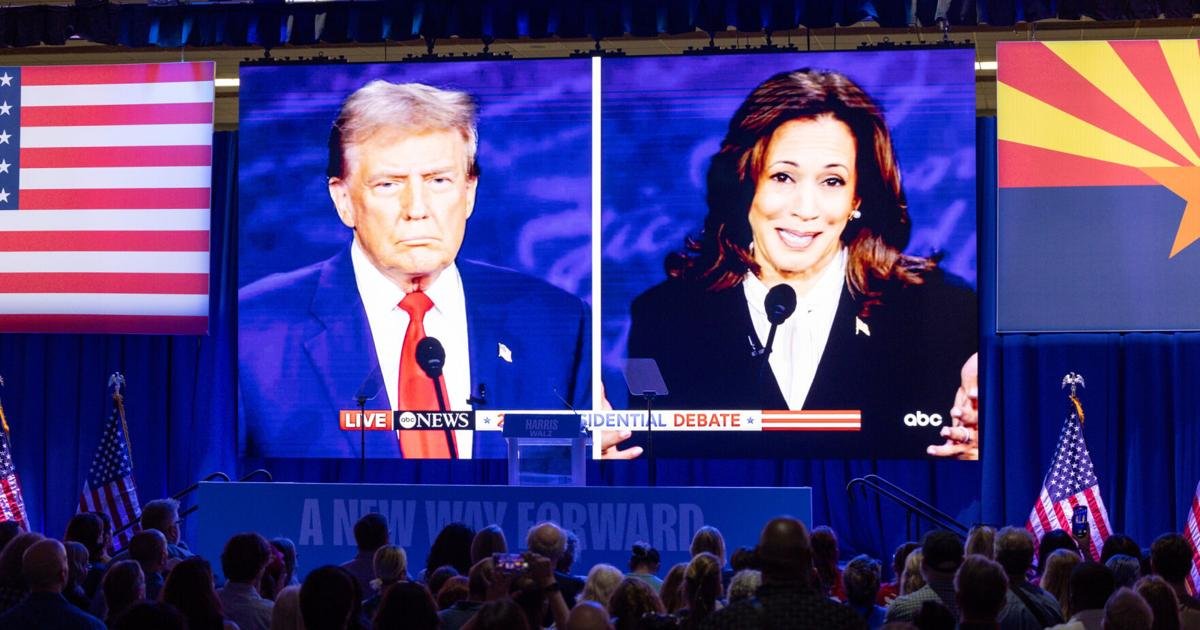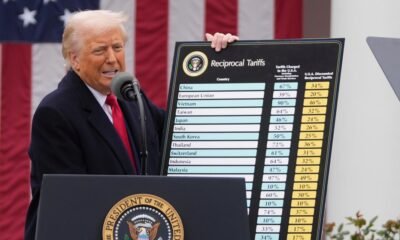Entertainment
Arizona Union Workers Navigate 2024 Presidential Landscape as Kamala Harris and Donald Trump Compete for Endorsements

WASHINGTON – In the recent Arizona presidential election, approximately 10,000 votes could have altered the final outcome. The state, home to around 133,000 union members, presents a critical voting demographic that influences election results significantly.
Historically, Democrats have garnered strong support from organized labor, largely owing to their advocacy for increased wages and collective bargaining rights. “They’re willing to fight for us,” stated Michael Thornton, a diesel mechanic and member of the International Association of Machinists and Aerospace Workers in Tucson.
However, a recent development saw former President Donald Trump gain traction when the Teamsters, the largest labor union in the country, opted not to endorse Vice President Kamala Harris for the upcoming election. “Under Trump, we had hope, we had opportunity, and we had results,” remarked Arizona Teamster Joe Shea during a Trump campaign call.
While Harris has a notable track record with unions, primarily in battleground states like Pennsylvania and Wisconsin, support in Arizona is fragmented. The state’s unionization rate sits at a mere 4.2%, significantly below the national average.
Unions, however, do more than just mobilize votes; they provide essential volunteer power for election campaigns. Linda Lomo, president of the Arizona Alliance for Retired Americans, emphasized their role in grassroots mobilization and legislative advocacy.
The Arizona AFL-CIO, representing over 185,000 members, alongside the United Food & Commercial Workers with 24,000, are key players advocating for workers’ rights and improved labor conditions.
Harris has secured endorsements from various Teamster locals in critical states, which could play a pivotal role in the election outcome, despite not receiving the national union’s backing. President Joe Biden has labeled himself as the most pro-union president, even becoming the first president to join striking workers on a picket line.
Harris continues to align herself with pro-labor policies, pledging to nurture an “opportunity economy” aimed at providing affordable housing and tax benefits for the middle class. Her previous experience as a senator showcased a 95% voting alignment with the AFL-CIO and participation in Biden’s worker empowerment initiatives.
Jacque Simon, public policy director at the American Federation of Government Employees, praised Harris for advocating for the PRO Act, which seeks to bolster collective bargaining rights, although House Republicans have consistently blocked the legislation.
Despite unions largely distancing themselves from Trump, certain groups, particularly those within border enforcement, have emerged as allies. Brandon Judd, former president of the National Border Patrol Council, expressed support for Trump, citing his focus on border security.
In a recent Trump rally, endorsement from local police unions like the Arizona Police Association reinforced his appeal among specific labor segments. Conversely, numerous unions have voiced opposition, recalling Trump’s previous policies that weakened union protections.
During his tenure, Trump enacted several orders affecting federal employee unions, limiting their power and reducing protections significantly. With a conservative Supreme Court majority, the administration also facilitated rulings detrimental to union funding. In light of these policies, Trump’s campaign insists he remains the better choice for working-class Americans, especially amid rising inflation.
Notably, polling data revealed that 59% of rank-and-file Teamsters preferred Trump over Harris. Yet, Teamsters President Sean O’Brien’s decision to withhold endorsement from either candidate indicates the ongoing complexities within labor politics.
While labor leaders navigate these intricacies, the differing responses to candidates illustrate the contrasting perceptions of support for workers. Observers highlight that engaging labor is not synonymous with being pro-labor, leading to intensified scrutiny of each candidate’s commitment to union interests.
















